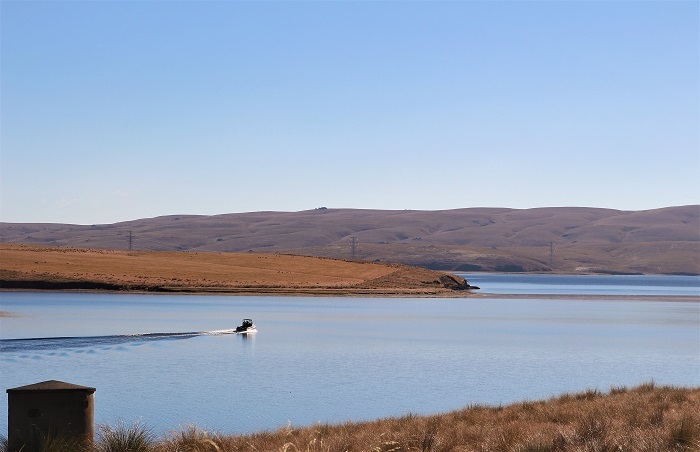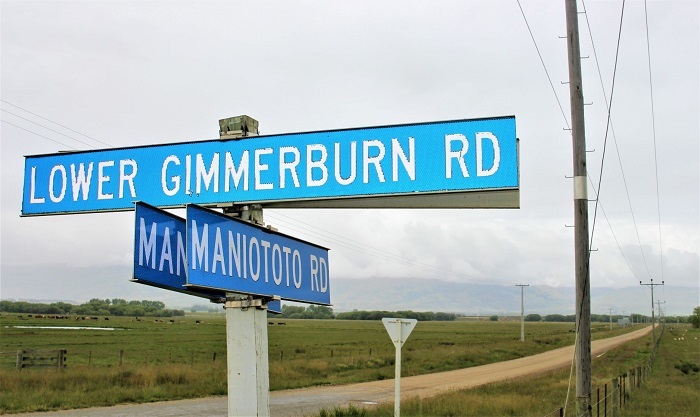Central’s future in your hands
Jill Herron
17 August 2022, 5:35 PM
 Buckle up, Central Otago, it’s going to be quite a ride. Mayor Tim Cadogan (above) takes a look at some weighty topics likely to become local body election issues
Buckle up, Central Otago, it’s going to be quite a ride. Mayor Tim Cadogan (above) takes a look at some weighty topics likely to become local body election issuesThousands of ‘fly-in, fly-out’ workers building the country’s biggest-ever hydro project, the rumble of long-haul jets touching down in Tarras, an affordable housing scheme up and running, decision-making power drifting out of Central Otago into hands outside the district… it all sounds a bit wild, yet none of this is impossible.
As candidates prepare their campaigns to gain the votes that will seat them around Central Otago’s local government tables, they could be forgiven for feeling overwhelmed by the number and scale of current issues, against a backdrop of climate change.
Mayor Tim Cadogan, unopposed and therefore re-elected, reckons that if there was ever a time for people to take an interest and have a jolly good look at who is standing for election, then this is it.
In the coming three-year term, transformational reforms will affect everyone in Central Otago.
Tim told The Central App the best people need to be chosen to make sure the district extracts the best outcomes from what’s to come.
There are some things the council can do nothing about in terms of decision-making, but only work to maximise local benefit, and the massive Lake Onslow pumped-hydro proposal falls into that category.
The government will decide at the end of this year whether to pursue a full feasibility study for the $4B plan that could require 3,000 workers.

Central Otago could again be the work site of a massive hydro-project, this time in the Teviot Valley.
“How do we make sure that if the government pushes the button on it, the impacts on Central Otago are managed as best as possible, the benefits are maximised, and it’s all done as fairly as possible. The impact is going to be significant in the Teviot but there will be ripples that come out across the broader part of the district,” Tim said.
If the government chooses not to pursue Onslow, its $100M NZ Battery Project study, aimed at finding ways to secure year-round power, will look at alternative technologies and sites around the country.
The international airport proposed for Tarras, if it proves feasible, is on track for starting consent processes in this term and much of that will be through the council’s planning department.
“The long-term effects and potential benefits will be felt. The same things apply – how do we get the community voice.”
Divisions forming within affected areas between supporters and opposers was a concern with both projects, Tim said.
Reform trifecta - water, resource management & local governance
A strongly-worded submission has gone to central government opposing the Bill - currently inching along in Parliament - to enact the Three Waters reforms.
Some controls over pricing and the provision of an independent authority, in the form of an ombudsman, to listen to individual’s concerns were high priority requests, Tim says.
“The Central Otago District Council is fundamentally opposed to the service delivery model proposed under this Bill,” council’s submission states.
“We believe that the mandating of the reforms is an attack to local democracy and request that the promise to our communities to be able to decide whether our district becomes part of the new reforms or not, should be kept.”
More strong words will flow, he says, when verbal submissions are given.
He says it became clear early on the government was going ahead with the reforms “come hell or high water”.
The benefits of having a foot in the door had already secured improvements, such as taking the costs of sending local representatives to meetings off ratepayers.
The long-overdue review of the Resource Management Act, that controls how consents are given, could, some say, have greater effects than the Three Waters reforms.
A move away from setting out our own rules for managing resources in a unique District Plan is possible, with a bigger regional plan taking over.
“There could be significant risks of a diminishing local voice in our planning,” Tim says.
Local Government organisational reforms are also just around the corner. He doesn’t believe Central Otago will be amalgamated with surrounding local bodies but still, he says, the changes will be “really big”.
The make up and structure of community boards, their powers, Māori representation and the funding of local government could all look very different.
A few other issues adding to the challenging but also exciting years to come include looking at better ways to irrigate farms – should Falls Dam near St Bathans be raised and if so, who should pay that bill, he asks.
With council’s own subdivisions humming along, potential existed for a new affordable housing proposal. This could set criteria for buyers and prevent new homes sitting empty as holiday batches, while businesses suffer daily from a lack of workers, shut out with nowhere to live.
Newly elected council and community boards will have to look down the barrel of some coming infrastructure bills that are packing a lot of punch.

Roading and bridges…essential but a huge cost to maintain across our district.
The long list of bridges - that can cost half a million dollars each to replace – that are closing and aging, is a concern. Tim admits it was fair to say this should have been looked at sooner, with some structures now in their nineties and already unusable.
Waka Kotahi NZ Transport Agency currently pays 51 per cent of the bill for such work.
“We are going to try and lift that and also go to the Minister of Transport for help. Because we’ve been rational and sensible on Three Waters, we hope we’ll be received with respect.”
Future-proofing water systems can cost tens of millions of dollars as some southern neighbours recently discovered (work in Winton is costing its authority $60M).
No-one knows how much it will cost to move the flood-prone Omakau ponds and plant, just that it needs to be done.
On a positive note, some big water projects had been completed or were progressing, Tim says, namely the Clyde wastewater project and the bringing of a new supply into Alexandra. Also the possibility of the cost of future water work being shifted off ratepayers through the Three Waters reform was there.
The overriding message for this election, Tim says, was to take an interest.
“Look at the people who are standing in your area. What have they got to offer, what is their experience and background. And don’t just take a casual look because what happens in the next three years in our council and community boards is incredibly important. And young people, take an interest. It is just so vital that young people wake up and have their voice heard.”



